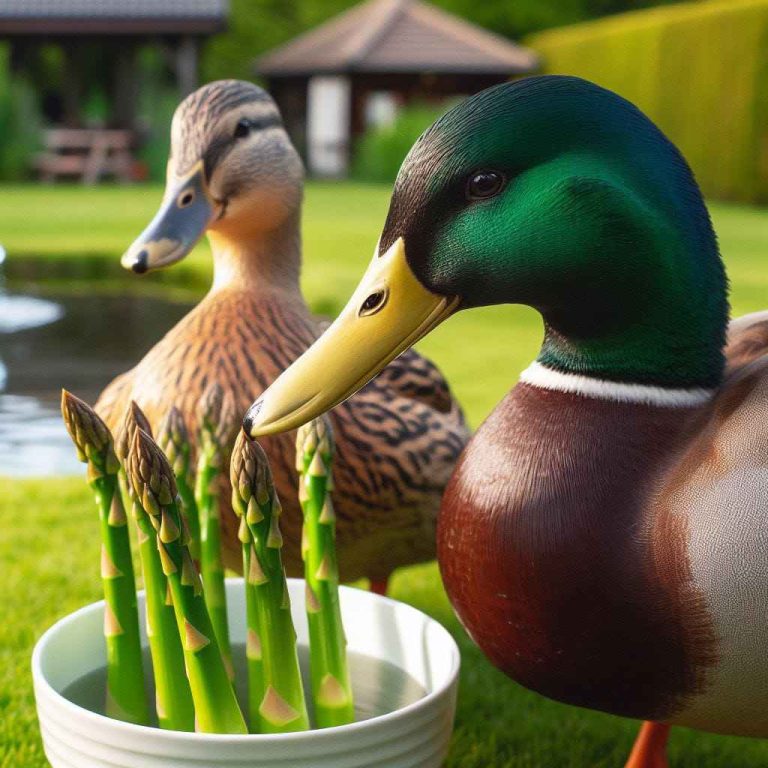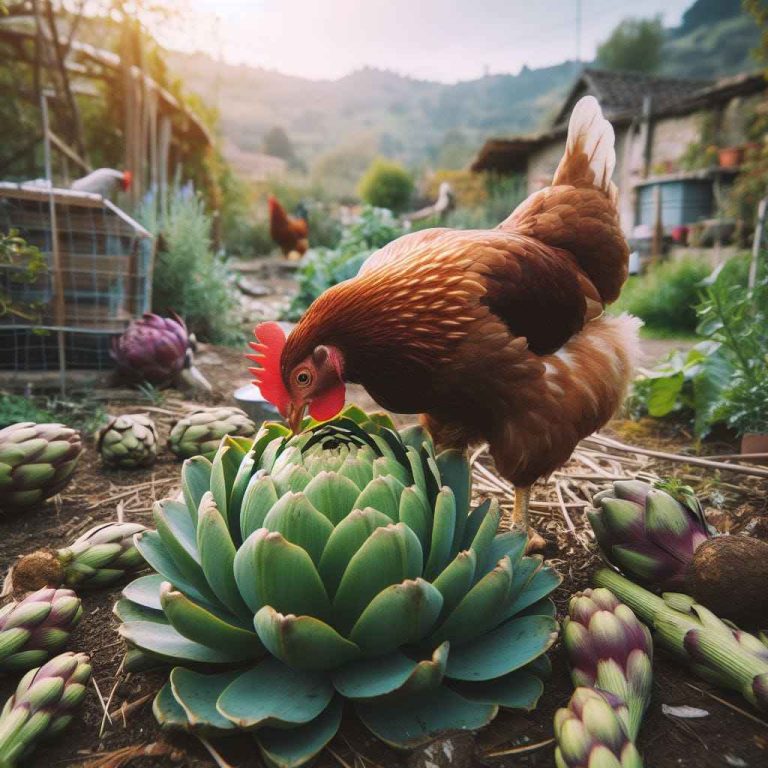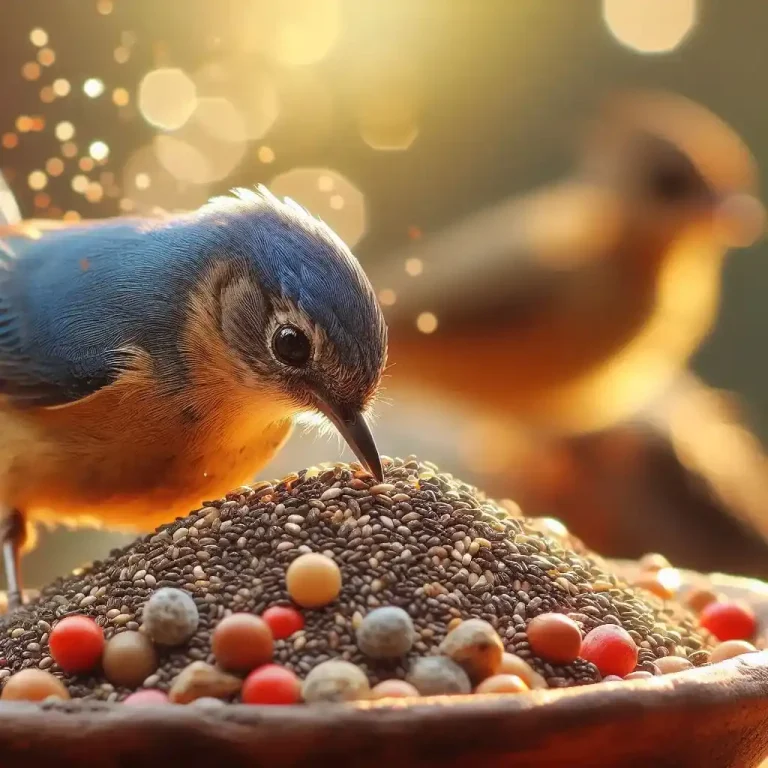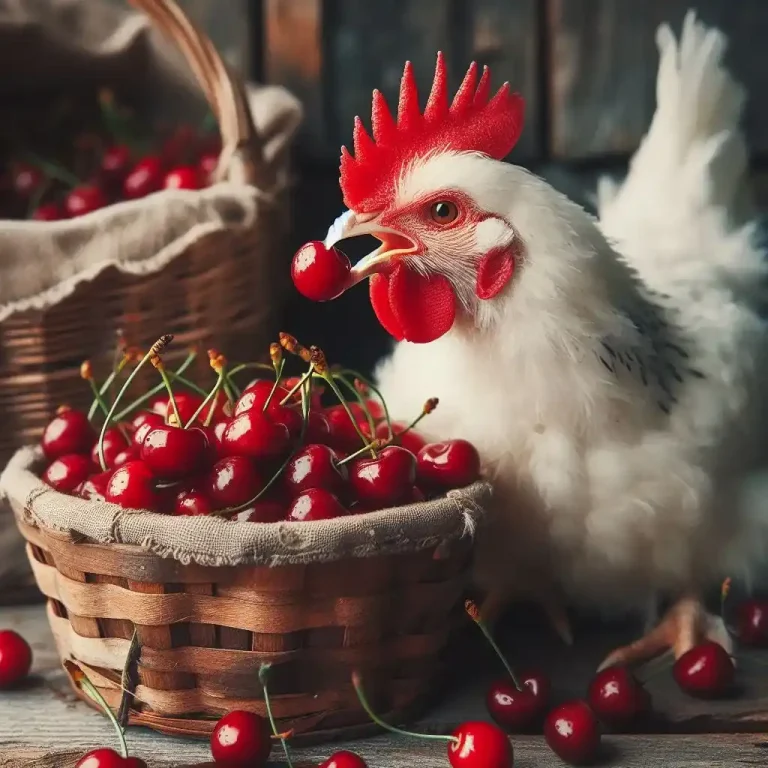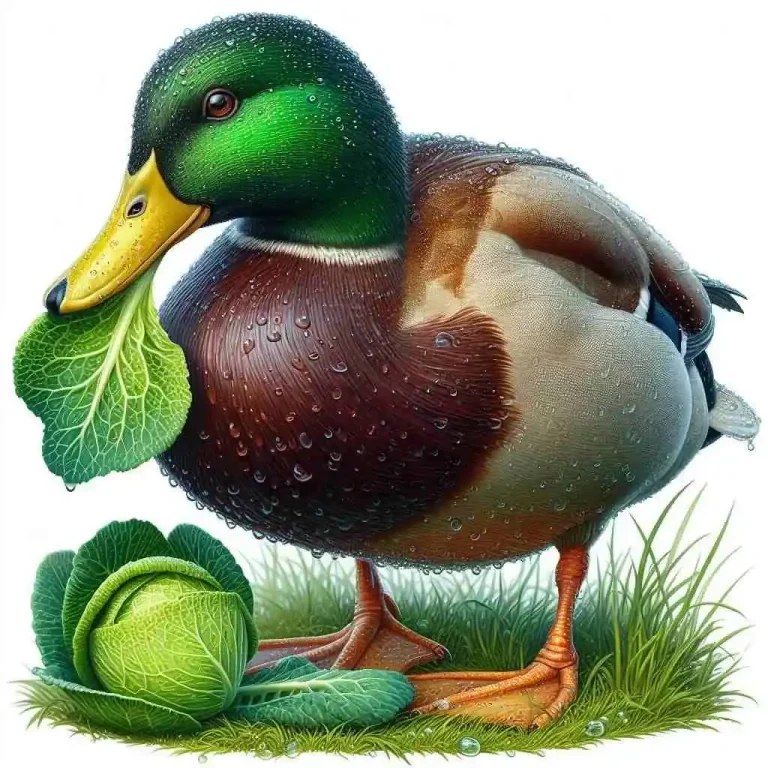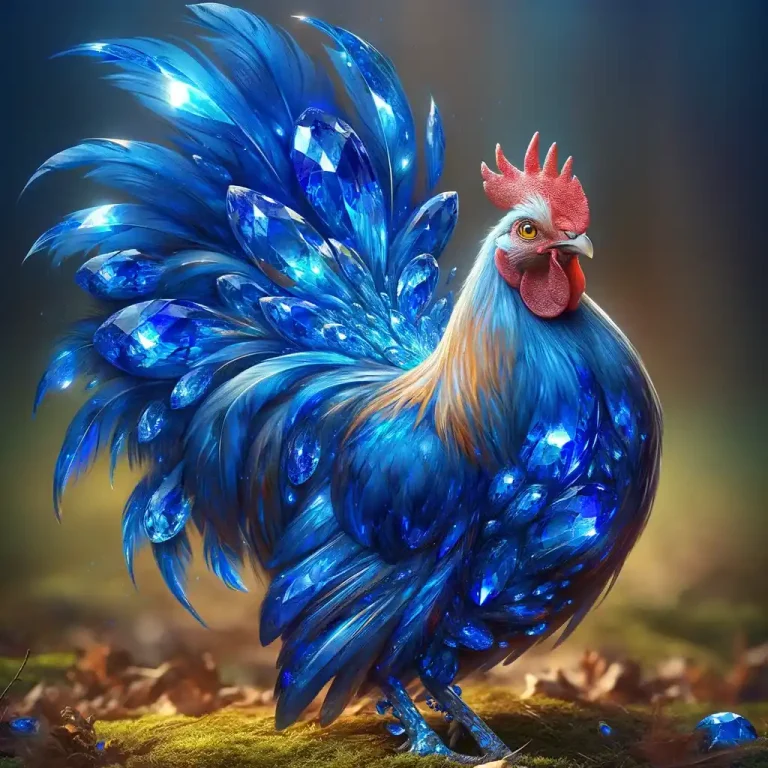Miniature Cows
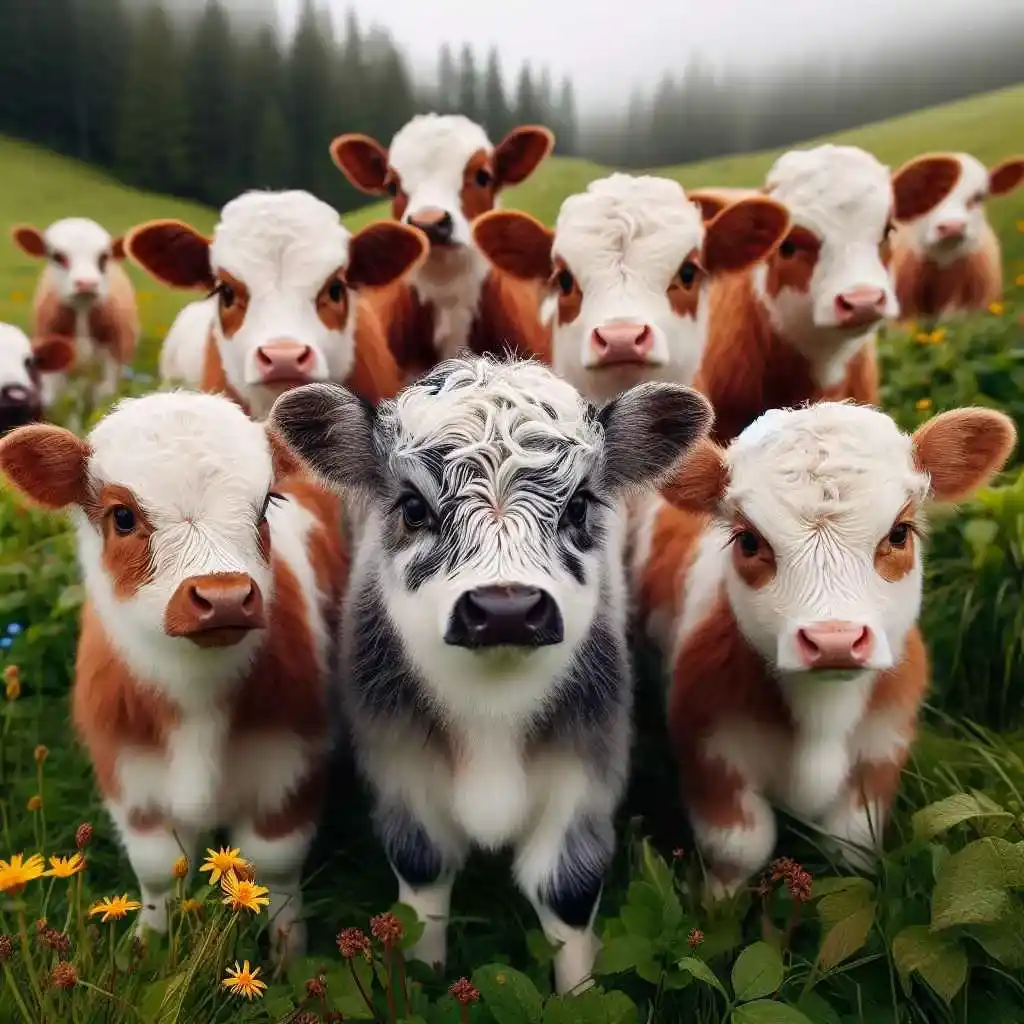
Miniature Cows
Miniature cows, charming in their pint-sized stature, have captured the hearts of enthusiasts and farmers alike with their unique appeal and practical advantages. Unlike their larger counterparts, these diminutive bovines offer a delightful blend of companionship, manageable care, and versatility in various living environments.
The concept of miniature cows has gained momentum as more people seek alternatives to traditional livestock for pets or smaller-scale farming. These miniatures often stand at a fraction of the height of standard cattle breeds, making them an ideal choice for those with limited space or a desire for a more intimate connection with their livestock.
Despite their small size, miniature cows retain the distinctive features of their larger relatives, such as the iconic shaggy coat, endearing faces, and, in some breeds, the gentle curve of horns. This makes them visually appealing while maintaining the charm of traditional cattle breeds.
The popularity of miniature cows extends beyond agricultural applications. Many individuals are discovering the joy of keeping them as pets, enjoying the friendly and docile nature these pint-sized creatures exhibit. Their manageable size allows for a more hands-on and personal interaction, fostering a strong bond between owner and animal.
In this exploration of miniature cows, we will delve into various aspects of their care, from understanding different breeds to discussing their nutritional needs, grooming requirements, and the practical considerations of keeping them as pets or on small farms. By the end of this journey, you’ll gain a comprehensive understanding of what makes miniature cows a fascinating and endearing choice for those seeking a unique and rewarding livestock experience.
Different Breeds of Miniature Cows: A Diverse World in Small Packages
The world of miniature cows is as diverse as it is enchanting, offering a variety of breeds that captivate with their unique characteristics, sizes, and temperaments. Each miniature breed brings its own charm and practical advantages to those seeking these pint-sized bovines for pets or small-scale farming. Let’s explore some of the popular miniature cow breeds, delving into what makes each one special.
Mini Highland
Known for their distinctive long, shaggy coats and sweeping horns, Mini Highland cows embody the charm of their larger relatives from the Scottish Highlands. Despite their smaller size, they retain the hardiness and friendly disposition that make Highland cattle beloved. Mini Highlands are ideal for those who appreciate the rugged beauty of the Highlands but in a more manageable package.
Miniature Zebu
Originating from India, Miniature Zebu cows are recognized for their humped appearance and small stature. Their compact size, gentle nature, and adaptability to various climates make them popular choices for both pets and small farms. Miniature Zebus come in a range of colors and patterns, adding to their visual appeal.
Dexter
Dexter cows, originally from Ireland, are well-regarded as one of the smallest cattle breeds. Despite their size, Dexters are hardy, efficient grazers, and excellent milk producers. Known for their friendly temperament, these miniatures are suitable for those with limited space or those seeking a dual-purpose breed for meat and milk.
Panda Cow
The Panda Cow, as the name suggests, is characterized by its distinctive black and white coat pattern, resembling that of a panda. While not a distinct breed, the Panda Cow pattern can be found in various miniature breeds, adding a whimsical and visually striking element to these charming bovines.
Belted Galloway
Miniature Belted Galloways are a downsized version of the classic Belted Galloway breed. Known for their striking black and white “belted” coat, these miniatures are not only visually appealing but also retain the hardiness and adaptability of their larger counterparts.
Exploring the diverse world of miniature cow breeds allows enthusiasts to find the perfect match for their preferences, whether it’s the iconic look of the Mini Highland, the unique appearance of the Miniature Zebu, or the compact efficiency of the Dexter. Each breed contributes to the rich tapestry of miniature cattle, offering endless possibilities for those embarking on the journey of mini cow ownership.
.
Miniature Cows as Pets: A Pint-Sized Bundle of Joy
Keeping miniature cows as pets has become a delightful trend, offering a unique and rewarding experience for individuals and families alike. These small bovines bring a blend of practicality, charm, and genuine companionship, making them ideal additions to households seeking a non-traditional yet enriching pet ownership experience.
Friendly Nature:
One of the key attractions of miniature cows as pets is their inherently friendly and docile nature. Unlike larger cattle breeds, miniatures are known for their approachable demeanor, making them suitable companions for both adults and children. Their gentle disposition fosters a sense of trust and affection, creating a warm and welcoming environment.
Manageable Size:
The practicality of miniature cows as pets is evident in their manageable size. With heights ranging from just a few feet to around four feet at the shoulder, they require less space compared to traditional livestock. This makes them well-suited for smaller yards, suburban homes, or even urban settings with adequate space for grazing.
Space Requirements:
While miniature cows have smaller space requirements than their larger counterparts, it’s essential to provide them with sufficient room for grazing, exercise, and comfortable living. Fenced yards or pastures with access to fresh grass or high-quality hay contribute to their well-being.
Companionship and Bonding:
Miniature cows excel at forming strong bonds with their human caregivers. Their sociable nature and inquisitive behavior create opportunities for meaningful interactions, fostering a sense of companionship that goes beyond the conventional pet experience. Many owners find joy in the daily routines of feeding, grooming, and spending quality time with their mini bovine companions.
Visual Appeal:
Beyond their friendly disposition, miniature cows bring a visual charm to any household. The iconic features of breeds like Mini Highland or Miniature Zebu, including shaggy coats and distinctive horns, add a touch of countryside aesthetics to the environment, creating a picturesque and endearing scene.
Educational Opportunities:
For families, keeping miniature cows as pets offers educational opportunities for children. Learning about animal care, nutrition, and the responsibilities of pet ownership becomes an engaging and hands-on experience, instilling valuable life skills.
In conclusion, the practicality and joys of keeping miniature cows as pets extend beyond their adorable appearance. Their friendly nature, manageable size, and the unique companionship they offer make them delightful additions to households seeking a special connection with these pint-sized bundles of joy. Whether in a suburban backyard or a rural homestead, miniature cows have proven to be more than pets; they become cherished members of the family.
Benefits of Miniature Cows for Small Farms: Cultivating Efficiency in a Compact Package
Integrating miniature cows into small farms presents a myriad of advantages, transforming them into valuable assets that contribute to efficiency, sustainability, and the overall well-being of the agricultural landscape. These pint-sized bovines offer unique benefits that resonate with the needs and goals of small-scale farming operations.
Manageable Size:
One of the primary benefits of miniature cows for small farms is their compact size. Unlike larger cattle breeds, miniatures require less acreage for grazing and housing. This allows small farm owners to make the most of limited space while maintaining a sustainable and efficient agricultural operation.
Efficient Grazing Habits:
Miniature cows possess efficient grazing habits that align with the scale of small farms. Their smaller stature allows them to navigate through pastures more easily, optimizing their grazing patterns. This efficiency translates to better land utilization, promoting healthier pasture management and reducing the need for supplementary feeding.
Reduced Environmental Impact
The smaller ecological footprint of miniature cows contributes to the sustainability of small farms. With less land, water, and feed required compared to larger breeds, these mini bovines minimize environmental impact. This aligns with the principles of sustainable agriculture, promoting responsible resource use and conservation.
Dual-Purpose Potential:
Many miniature cow breeds, despite their smaller size, retain valuable dual-purpose characteristics. This includes efficient milk production, making them suitable for small-scale dairy operations. The ability to generate milk, meat, and other by-products within a compact framework enhances the overall productivity of small farms.
Manure Management:
Miniature cows contribute to efficient manure management on small farms. Their smaller waste output is easier to handle, and when managed properly, their manure can serve as a valuable natural fertilizer for crops. This closed-loop system fosters a sustainable and environmentally conscious approach to agriculture.
Educational Opportunities:
For educational or agrotourism purposes, miniature cows on small farms provide engaging opportunities for visitors to learn about sustainable farming practices. Educational programs centered around these miniatures can promote awareness of agriculture, animal husbandry, and the importance of supporting local, sustainable food sources.
Enhanced Personal Connection:
The smaller scale of miniature cows allows farmers to establish a more personal connection with each animal. This intimate relationship fosters better care, monitoring, and individual attention, contributing to the overall health and contentment of the herd.
In conclusion, the benefits of incorporating miniature cows into small farms extend beyond their adorable appearance. Their manageable size, efficient grazing habits, and potential contributions to sustainable agriculture position them as valuable allies for small-scale farmers looking to optimize resources, minimize environmental impact, and cultivate a thriving and efficient farming enterprise.
Nutritional Needs of Miniature Cows:
• Delve into the dietary requirements of miniature cows, including the importance of balanced nutrition, suitable pasture or hay, and any specific feeding considerations.
Nutritional Needs of Miniature Cows: Nurturing Well-being in Smaller Packages
Understanding the nutritional needs of miniature cows is essential for maintaining their health, promoting growth, and ensuring overall well-being. Despite their diminutive size, these mini bovines have specific dietary requirements that, when met thoughtfully, contribute to their vitality and longevity.
Balanced Nutrition
Providing a well-balanced diet is paramount for the health of miniature cows. Their nutritional requirements encompass a mix of carbohydrates, proteins, fats, vitamins, and minerals. A carefully formulated feed, designed for the unique needs of miniature breeds, can help ensure that they receive the essential nutrients for growth, maintenance, and reproduction.
Suitable Pasture or Hay
Access to suitable pasture or high-quality hay is crucial for miniature cows. Pasture grazing allows them to exhibit natural behaviors, obtain essential nutrients, and engage in physical activity. Additionally, high-quality hay serves as a supplemental source of fiber, promoting healthy digestion and preventing issues like bloating.
Water Requirements
Adequate access to clean and fresh water is fundamental for miniature cows. It plays a vital role in digestion, nutrient absorption, and overall hydration. Ensuring a constant and clean water supply is essential for their well-being, particularly during periods of warm weather or increased physical activity.
Mineral and Vitamin Supplements
Miniature cows may benefit from mineral and vitamin supplements to address specific nutritional needs. Consultation with a veterinarian or nutritionist can help determine if supplementation is necessary based on factors such as the local soil composition, feed quality, and individual health requirements.
Grazing Management
Efficient pasture management is critical for miniature cows. Rotational grazing systems help prevent overgrazing, maintain pasture health, and ensure a continuous supply of fresh forage. Proper grazing practices contribute to both the nutritional well-being of the miniatures and the sustainability of pasture resources.
Monitoring Body Condition
Regularly monitoring the body condition of miniature cows is vital. Adjusting their diet based on factors such as age, reproductive status, and seasonal variations helps prevent issues related to overfeeding or undernourishment. Maintaining an optimal body condition supports overall health and reproductive success.
Feeding Considerations for Specific Breeds
Different miniature cow breeds may have unique dietary considerations based on their genetic traits and predispositions. For instance, breeds known for efficient milk production may require additional nutritional support to meet the demands of lactation.
Grooming Tips for Miniature Cows: Maintaining Radiance in Miniature Majesty
Grooming miniature cows involves a combination of care, attention to detail, and a gentle touch. Despite their smaller size, these pint-sized bovines have unique grooming needs that, when tended to regularly, contribute to their well-being and showcase their inherent charm. Here are some grooming tips tailored for the care of smaller cows:
Regular Brushing
Brushing is a fundamental aspect of miniature cow grooming. Their shaggy coats, similar to their larger counterparts, benefit from regular brushing to remove dirt, loose hair, and prevent matting. Brushing also stimulates blood circulation and helps distribute natural oils, maintaining a healthy and glossy coat.
Hoof Care
Miniature cows require regular hoof care to prevent issues such as overgrowth, cracks, or infections. Trimming their hooves every few months helps maintain proper hoof health. This task is generally more manageable due to their smaller size, making it easier for owners to conduct routine inspections and care.
Cleaning Sensitive Areas
Pay special attention to cleaning sensitive areas, such as the udder and around the tail. Regularly check for any signs of irritation, cleanliness, or potential health issues. Keeping these areas clean helps prevent discomfort and minimizes the risk of skin-related problems.
Addressing Specific Grooming Challenges
Miniature cows may face specific grooming challenges based on their breed characteristics. For example, those with longer hair around the eyes may be prone to eye irritation or matting. Address such challenges by gently trimming or brushing away excess hair, ensuring their eyes remain clear and comfortable.
Gentle Handling
Approach grooming with a calm and gentle demeanor. Miniature cows, known for their friendly nature, generally respond positively to patient handling. Establishing a positive grooming routine early on helps build trust between the animal and the caregiver, making the process smoother and more enjoyable.
Tick and Parasite Prevention
Implement measures for tick and parasite prevention. Miniature cows, like any livestock, can be susceptible to external parasites. Using approved parasite control products and maintaining a clean living environment help minimize the risk of infestations, contributing to their overall well-being.
Temperature Considerations
Be mindful of temperature variations during grooming. In colder weather, ensure that miniature cows are properly dried after grooming to prevent chilling. In warmer weather, consider grooming during cooler parts of the day to avoid heat stress.
Dental Check-ups
While not a typical grooming task, regular dental check-ups are essential for miniature cows. Ensure that their teeth are in good condition, as dental health plays a crucial role in their overall well-being and nutrient absorption.
In conclusion, grooming miniature cows involves a combination of routine care, attention to specific needs, and a gentle touch. Establishing a positive grooming routine not only contributes to their physical well-being but also enhances the bond between the miniature cow and its caregiver. By addressing grooming needs with care and diligence, owners can showcase the inherent majesty of these smaller-sized bovines.
Space and Shelter Considerations
Crafting Comfortable Havens
Creating a conducive living environment for miniature cows involves thoughtful planning to ensure their well-being and happiness. Despite their smaller size, these pint-sized bovines have specific space and shelter requirements that, when met, contribute to their health, contentment, and overall quality of life.
Adequate Grazing Areas
Miniature cows, like their larger counterparts, benefit from access to suitable grazing areas. Provide ample space for grazing to meet their dietary needs and allow for natural behaviors such as roaming and foraging. Rotational grazing systems can be implemented to maintain optimal pasture health and prevent overgrazing.
Shelter from Harsh Weather
A comfortable and well-designed shelter is essential to protect miniature cows from harsh weather conditions. This includes providing shade during hot summer months and a sheltered space during inclement weather, such as rain or snow. Ensure that the shelter is adequately ventilated to maintain a comfortable temperature.
Fencing Requirements
Secure fencing is crucial to confine miniature cows to designated areas and ensure their safety. Choose fencing materials and heights appropriate for their size to prevent escapes and keep potential predators at bay. Regularly inspect and maintain fences to address any wear or damage.
Provision of Clean Water
Access to clean and fresh water is fundamental for miniature cows. Ensure that water sources are strategically placed within their living space to encourage regular hydration. Regularly clean water troughs to prevent contamination and maintain water quality.
Manure Management
Implement a practical manure management system to maintain a clean living environment. Regularly remove and properly dispose of manure to prevent the buildup of waste and minimize the risk of parasites or infections. This contributes to both the health of the miniature cows and the overall cleanliness of their surroundings.
Appropriate Bedding Material
Provide appropriate bedding material in sheltered areas to ensure a comfortable resting place for miniature cows. This can include straw, hay, or other suitable materials that offer insulation and help regulate temperature. Clean and replace bedding regularly to maintain hygiene.
Separate Areas for Feeding and Resting
Designate separate areas for feeding and resting within their living space. This organization helps prevent contamination of feeding areas with manure and ensures that miniature cows have a clean and comfortable space for relaxation.
Monitoring and Observation
Regularly monitor the living space and observe the behavior of miniature cows. This allows for prompt identification of any issues, such as changes in health, potential hazards, or signs of stress. A well-designed living environment facilitates easy observation and timely intervention when necessary.
By addressing space and shelter considerations with diligence and care, owners can create havens that cater to the unique needs of miniature cows. A thoughtfully planned living environment not only promotes their physical health but also fosters an environment where these endearing creatures can thrive, showcasing their inherent charm and vitality.
Healthcare Essentials for Miniature Cows: Nurturing Vitality in Petite Herds
Ensuring the health and well-being of miniature cows involves proactive healthcare measures, regular monitoring, and a commitment to preventive practices. Despite their smaller size, these charming bovines are susceptible to certain health issues that, when addressed promptly, contribute to a vibrant and thriving herd. Here are key healthcare essentials for miniature cows:
Common Health Issues
Miniature cows may encounter specific health issues, such as hoof problems, dental issues, or metabolic disorders. Be vigilant for signs of lameness, changes in behavior, or weight loss. Addressing these issues promptly can prevent their escalation and promote a healthier overall herd.
Parasite Control
Implement a robust parasite control program to safeguard miniature cows from internal and external parasites. Regular deworming, strategic pasture management, and maintaining a clean living environment are essential components of an effective parasite prevention strategy.
Dental Care
Regular dental check-ups are crucial for miniature cows. Dental issues can impact their ability to graze and consume feed properly. Schedule routine examinations with a veterinarian and address any dental abnormalities promptly to ensure proper nutrition and overall well-being.
Vaccination Schedule
Follow a comprehensive vaccination schedule tailored to the specific needs of miniature cows. Vaccines help prevent common diseases and contribute to the overall health of the herd. Consult with a veterinarian to develop a vaccination plan that aligns with regional disease risks.
Hoof Care
Miniature cows, like all cattle, require routine hoof care. Regular trimming helps prevent issues such as overgrowth, lameness, and structural problems. Establish a schedule for hoof maintenance and address any signs of hoof-related discomfort promptly.
Nutritional Assessment
Conduct regular nutritional assessments to ensure that miniature cows receive a balanced and appropriate diet. Monitor body condition, address any weight fluctuations, and adjust feeding programs as needed. Adequate nutrition is fundamental to their overall health and resistance to diseases.
Obesity Prevention
Minimize the risk of obesity by monitoring the body condition of miniature cows. Obesity can lead to various health issues, including metabolic disorders and joint problems. Adjust feeding practices and grazing access to maintain a healthy body weight.
Reproductive Health
Pay attention to reproductive health in breeding programs. Monitor estrous cycles, ensure proper mating practices, and conduct fertility assessments with the guidance of a veterinarian. Timely intervention and reproductive health management contribute to successful breeding outcomes.
Emergency Preparedness
Be prepared for emergencies by having a well-stocked first aid kit and an emergency plan in place. Familiarize yourself with common health emergencies and know when to seek professional veterinary assistance.
Importance of Regular Veterinary Check-ups
Regular veterinary check-ups are indispensable for miniature cows. These examinations allow veterinarians to assess overall health, identify potential issues early on, and provide guidance on preventive healthcare measures. Establishing a strong veterinarian-customer-patient relationship ensures comprehensive care for the miniature herd.
By incorporating these healthcare essentials into the management routine, owners can cultivate a thriving and resilient herd of miniature cows. Proactive health measures, combined with regular veterinary care, contribute to the longevity, vitality, and well-being of these endearing creatures.
Miniature Cows in Urban Settings: A Petite Pasture in the Cityscape
The notion of keeping miniature cows in urban or suburban settings has garnered interest for those seeking a unique and sustainable livestock experience in more confined spaces. While the charm of miniatures is undeniable, several considerations, including legal aspects and responsible ownership, play a crucial role in determining the feasibility of introducing these pint-sized bovines into cityscapes.
Space Requirements
Miniature cows, with their smaller size, are more adaptable to limited spaces compared to larger breeds. However, sufficient space for grazing, exercise, and comfortable shelter remains a fundamental requirement. Urban or suburban settings should offer access to a small pasture or adequately sized yard to meet the dietary and behavioral needs of miniature cows.
Legal Considerations
Before welcoming miniature cows into urban environments, it’s imperative to research and adhere to local zoning regulations and municipal bylaws. Check whether keeping livestock, even in miniature form, is permitted in residential areas. Some municipalities may have specific restrictions or guidelines governing the ownership of farm animals within city limits.
Noise and Odor Control
Miniature cows generally produce less noise and odor compared to larger livestock, but it’s essential to consider the potential impact on neighbors. Implementing measures for waste management, such as regular manure removal and proper storage, helps minimize odor. Additionally, maintaining a clean and well-kept living environment contributes to harmonious urban living.
Feasibility of Grazing
Assess the feasibility of providing grazing opportunities for miniature cows. Urban or suburban areas may have limitations on available green spaces. Explore creative solutions, such as community gardens or shared spaces, to incorporate grazing into their routine. Additionally, supplementing their diet with high-quality hay or forage can compensate for limited grazing options.
Community Engagement
Engage with the local community to gauge support for miniature cow ownership. Open communication with neighbors can foster understanding and address potential concerns. Consider participating in community events or outreach programs to showcase the educational and aesthetic aspects of miniature cows.
Veterinary Care Accessibility
Ensure that veterinary care is readily accessible in the urban setting. Identify veterinarians with experience in caring for miniature cows and establish a relationship for regular check-ups and emergency situations. Access to veterinary care is crucial for responsible ownership and the well-being of the miniature herd.
Educational Initiatives
Undertake educational initiatives to raise awareness about miniature cow ownership. Share information about their size, behavior, and the positive aspects of having them in urban environments. Providing educational resources can dispel misconceptions and foster a positive perception within the community.
Compliance with Animal Welfare Standards
Prioritize compliance with animal welfare standards and guidelines for miniature cow care. This includes providing proper nutrition, shelter, and veterinary care. Adhering to high standards of responsible ownership contributes to the well-being of the miniatures and promotes a positive image of urban livestock ownership.
Conclusion: Embracing Miniature Cows – A Petite Tapestry of Charm and Practicality
In the captivating world of miniature cows, the amalgamation of charm and practical benefits creates a tapestry that enchants enthusiasts and beckons responsible ownership. As we traverse the diverse landscape of miniature cow care, several key points emerge, underscoring the unique appeal and potential joys these delightful creatures bring.
Charm Beyond Size
Miniature cows, with their endearing features and petite stature, encapsulate the rustic charm of their larger counterparts in a more manageable form. Whether it’s the iconic shaggy coat of the Mini Highland or the compact elegance of the Miniature Zebu, these miniatures add a picturesque allure to any setting.
Practical Benefits for All
Far from just being charming companions, miniature cows offer practical benefits for both pet owners and small-scale farmers. Their manageable size allows for urban or suburban ownership, while efficient grazing habits contribute to sustainable agriculture. Miniature cows, such as the Mini Highland, with its dual-purpose potential, showcase the versatility that these pint-sized bovines bring to the agricultural landscape.
Responsibility in Ownership
The joy of miniature cow ownership is intertwined with responsibility. From legal considerations in urban settings to healthcare essentials and community engagement, responsible ownership forms the foundation of a harmonious and positive experience. By adhering to local regulations, maintaining proper care standards, and fostering open communication within communities, owners can ensure the well-being of their miniatures.
A Symphony of Well-being
Ensuring the well-being of miniature cows involves a symphony of elements, including balanced nutrition, attentive grooming, suitable living spaces, and regular veterinary care. This holistic approach nurtures vitality and resilience, allowing these petite creatures to flourish in diverse environments.
Joy in the Journey:
Amidst the responsibilities and practical considerations, the joy of caring for miniature cows shines through. Their friendly nature, individual personalities, and the unique bonds formed with owners create a fulfilling and rewarding experience. Miniature cows, whether as pets or on small farms, bring a touch of joy that extends beyond their physical presence.
In embracing miniature cows, we embark on a journey that intertwines the charm of these endearing creatures with the practical advantages they offer. The canvas painted by miniature cows reflects not only their own petite majesty but also the joy, responsibility, and community engagement that come with their ownership. As stewards of these delightful beings, let us cherish the charm they bring to our lives and cultivate responsible practices that ensure their well-being for generations to come.
Miniature cows, despite their smaller size, still require ample space for grazing, exercise, and shelter. The specific space requirements depend on factors such as the breed, local regulations, and individual needs. It’s essential to provide a comfortable living environment that meets their dietary and behavioral needs.
While miniature cows can be kept as pets in urban settings, it’s crucial to consider local zoning regulations, space limitations, and the ability to provide proper care. Responsible ownership, including waste management and adherence to legal requirements, is essential to create a harmonious living environment for both the miniatures and the community.
The lifespan of miniature cows typically ranges from 12 to 20 years, depending on factors such as genetics, diet, healthcare, and living conditions. Providing proper nutrition, regular veterinary care, and a suitable living environment contribute to their overall health and longevity.
Many miniature cow breeds, such as the Miniature Jersey or Miniature Zebu, have the potential for milk production. While their milk yield is smaller compared to larger dairy breeds, miniature cows can provide high-quality milk. Consideration should be given to the specific breed characteristics and the owner’s goals for milk production.
Choosing the right breed of miniature cow depends on your specific goals and preferences. Consider factors such as size, temperament, purpose (pet, milk production, or dual-purpose), and suitability for your environment. Research different breeds, consult with experienced owners or breeders, and evaluate your own capacity for care to make an informed decision.

